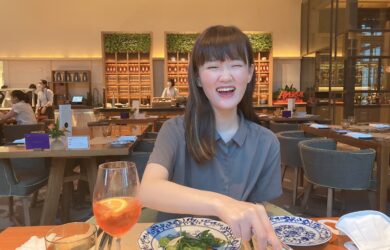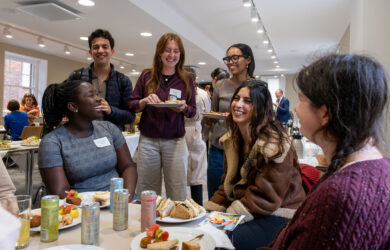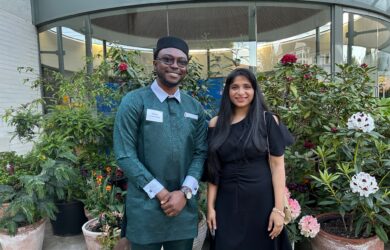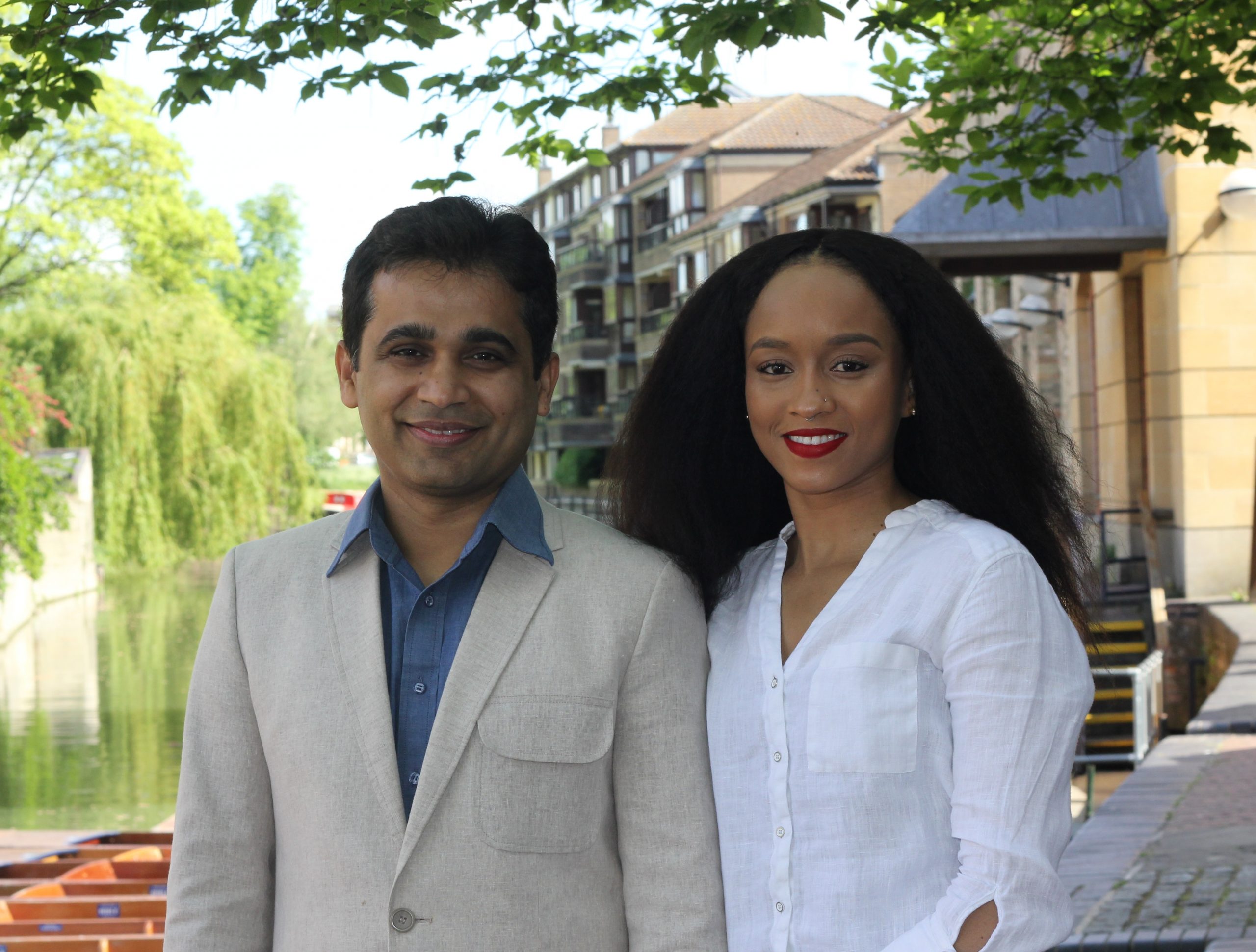
Gates Cambridge scholars are having a major impact in the education field, from widening participation and education for peace to developing new teaching models.
Arif was an exceptional PhD student and scholar...He challenged the idea that Western-origin concepts of social mobility could be transposed to the Pakistan context. He improved our understanding of the role of education in reproducing social, economic and intersectional inequalities of various kinds, and illuminated its complex relation with caste and faith.
Madeleine Arnot, Emerita Professor of Sociology of Education and Arif Naveed's co-supervisor
“People have been misled about what education is,” says Tara Westover [2008, pictured right]. It’s not just about passing exams, homework and essays, she states. It’s about accessing different ideas and perspectives that challenge received views. This is particularly true of universities. She says: “University should be a place where you really experience different people. It should not be about people reading the same texts and having the same interpretations. There should not be one dominant way of thinking about things.”
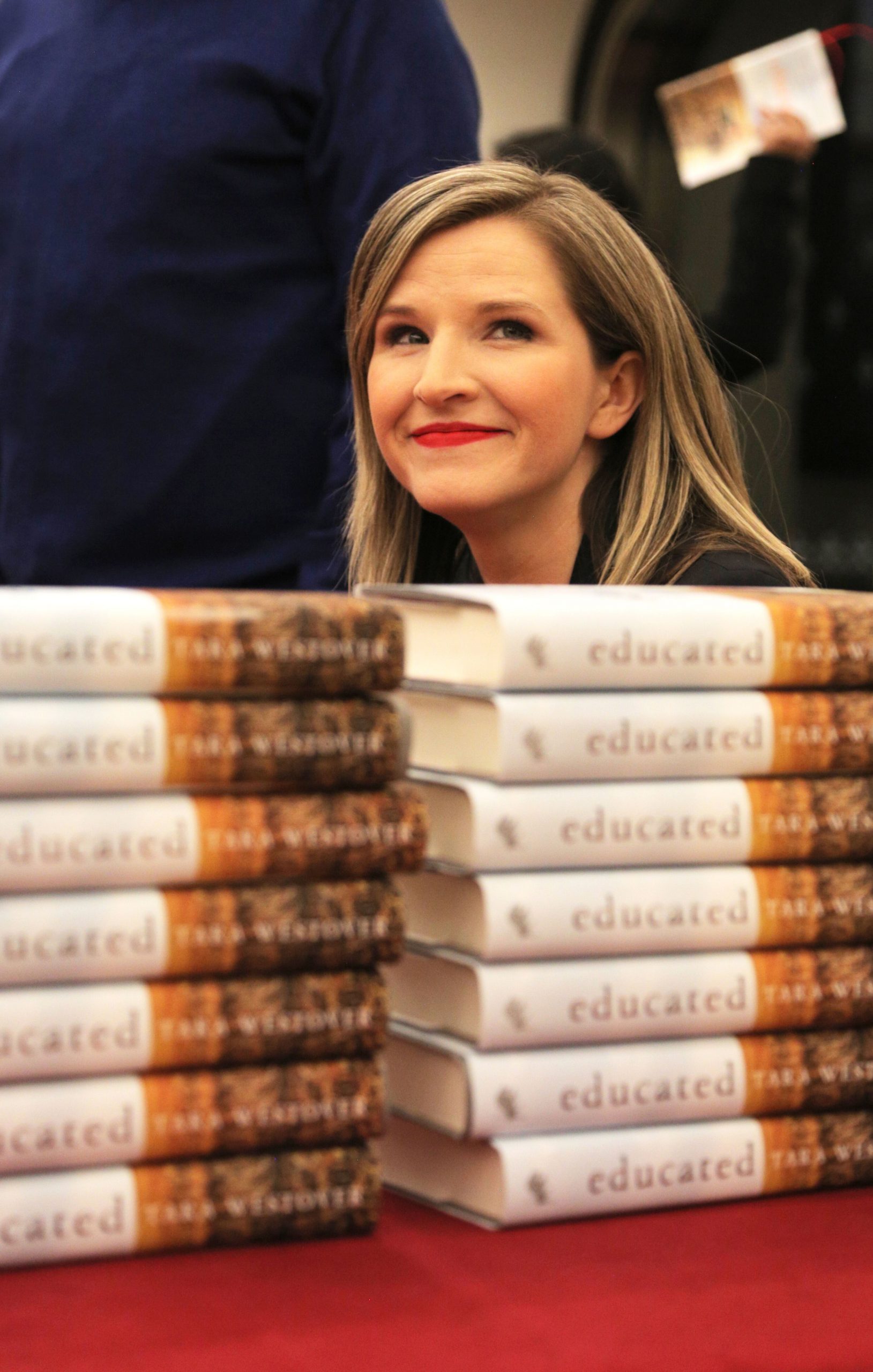 Tara’s best-selling book Educated, which has been translated into 45 languages, is about her experiences growing up in rural Idaho, raised by a radical, survivalist father who was intensely paranoid about government interference in the lives of his family. Tara didn’t go to school, but managed to get into university and to do her PhD at the University of Cambridge.
Tara’s best-selling book Educated, which has been translated into 45 languages, is about her experiences growing up in rural Idaho, raised by a radical, survivalist father who was intensely paranoid about government interference in the lives of his family. Tara didn’t go to school, but managed to get into university and to do her PhD at the University of Cambridge.
She is one of many Gates Cambridge scholars who have challenged ideas of what education is and pushed the boundaries of what it could become. They include Simon Breakspear [2009]. He has recently co-authored a book which offers a new approach to educational leadership, drawing inspiration from horticulture to address the chronic issues of overwork and inefficiency in schools. The Pruning Principle proposes a radical shift from the culture of “doing more” to one of strategic subtraction, arguing that by carefully pruning away non-essential tasks and initiatives, schools can achieve better outcomes with less strain on resources and staff.
Simon is an Adjunct Senior Lecturer at UNSW, Australia, and advisor to the NSW Department of Education. He is the creator of the Teaching Sprints method and founder of the Strategic Schools podcast.
Laura Marcus [2014] is Co-Executive Director at Tidelines Institute, whose mission is to educate a diverse generation of citizens, stewards and leaders through immersive courses in the communities and wildlands of S’íx’ Tlein (Icy Strait) and Sít’ Eeti Gheeyí (Glacier Bay) in Alaska. It acts as a research base and runs short courses, community workshops and gap-year programmes for young people. Laura has long been interested in how the education system can better prepare young people for democratic citizenship.
During her time at Cambridge she ran the Arete Project, which she founded. It involves a small cohort doing experiential, liberal arts and sciences education in a wild setting which aims to encourage challenging conversations across boundaries of difference. The project was also very much student-centred, with students and alumni sitting on a range of committees covering everything from applications to outreach and hiring faculty.
Current scholars are also pushing the boundaries of education practice.
They include Vishal Vasanthakumar [2023] who is doing a PhD in Sociology which focuses on how elite education in India creates and reproduces caste and class identities. He says: “Through my research, I hope to unpack the mechanisms of how identities reproduce and manifest themselves in new forms through education and how elites contribute to these dynamics.” He recently published a book, The Smart and the Dumb: The politics of education in India, which is described as an attempt to capture what the purpose of education should be today through exploring education’s connections to caste, class and gender and understanding how they affect the promise of education.
It catalogues everything from the fractured realities of the many children who want guns for Christmas and the psychological trauma of conflict in Manipur to why a grandmother chose to get her fifteen-year-old granddaughter married to a seventeen-year-old truck driver in rural Rajasthan as it attempts to paint a portrait of the political and cultural processes that affect education.
Meanwhile, Surya Pratap Depa [2021], who is doing a PhD in Education on how teachers can influence dominant knowledge paradigms, has been running a free school for a disadvantaged community in rural India. He founded the Flourishing Minds Foundation in 2011 and has worked with schools, government bodies, multinational agencies and NGOs to integrate neuropsychological research with lived experience to foster learning and well-being in schools.
Social justice research
At a time when academic freedom is under attack in many parts of the world, other scholars are also doing work on democratic values and social justice within the education sphere.
 Thabo Msibi [2009, pictured left], for instance, is the Deputy Vice Chancellor for Teaching and Learning and a professor of Curriculum Studies in the School of Education at the University of KwaZulu-Natal in South Africa where he has recently rolled out an innovative new critical social justice and citizenship module. It challenges students to recognise a bit of themselves in everyone else and to respond with kindness, humility and humanity. Thabo says: “Social justice is my passion. Every project I get involved in has to be about empowering people and challenging assumptions about race and gender.”
Thabo Msibi [2009, pictured left], for instance, is the Deputy Vice Chancellor for Teaching and Learning and a professor of Curriculum Studies in the School of Education at the University of KwaZulu-Natal in South Africa where he has recently rolled out an innovative new critical social justice and citizenship module. It challenges students to recognise a bit of themselves in everyone else and to respond with kindness, humility and humanity. Thabo says: “Social justice is my passion. Every project I get involved in has to be about empowering people and challenging assumptions about race and gender.”
Aliya Khalid [2015], who joined Thabo and Tara Westover on a Gates Cambridge podcast on what education is for, shares that focus on social justice. Her research focuses on young people and families’ experiences of education in turbulent times such as after the Pakistan floods of 2022.
Currently Course Director for the MSc Comparative and International Education programme at the University of Oxford, Aliya’s PhD built on her interviews with Pakistani mothers who engaged with their contexts in unconventional ways to enable their daughters’ education. She recently co-edited a book, The Politics of Silence, Voice and the In-Between: Exploring Gender, Race and Insecurity from the Margins, which argues that, regardless of marginalisation, people create spaces of liminality where they seek control over their lives by navigating the structures that exclude them.
Derron Wallace’s research also focuses on marginalised communities and builds on his work as a community organiser with Citizens UK, as a Special Assistant to the Minister of Education in Rwanda, as a consultant with local educational authorities in London, and as a National Director at The Posse Foundation in the US which provides leadership training for individuals with extraordinary potential.
A cultural sociologist of race, ethnicity and education, Derron [2010] is currently the Jacob S. Potofsky Chair in Sociology and associate professor of sociology and education at Brandeis University, USA. He is also a research fellow at the University of Manchester, England. His book, The Culture Trap: Ethnic Expectations and Unequal Schooling for Black Youth, argues that the overreliance on culture to explain Black students’ achievement and behaviour in schools is a trap that undermines the historical factors and institutional processes that shape how Black students experience schooling.
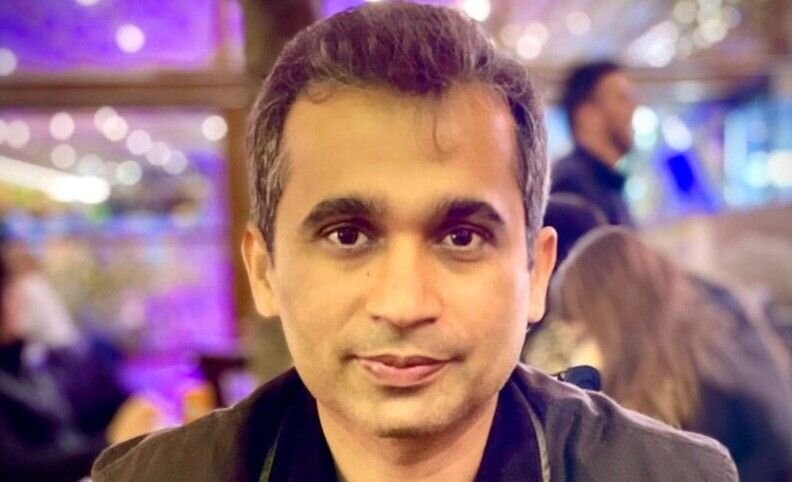 The late Arif Naveed [2014, pictured above and right] was also an influential thinker about education policy and his impact was recognised when he won the Bill Gates Sr. Award with Jerelle Joseph [2014], who herself had co-founded CariScholar, non-profit mentorship programme for Caribbean Scholars whilst at Cambridge. Both are pictured above.
The late Arif Naveed [2014, pictured above and right] was also an influential thinker about education policy and his impact was recognised when he won the Bill Gates Sr. Award with Jerelle Joseph [2014], who herself had co-founded CariScholar, non-profit mentorship programme for Caribbean Scholars whilst at Cambridge. Both are pictured above.
Arif was born in a village in south Punjab in Pakistan and, having got into university, he started to question why he had done so well while other bright students in his school had dropped out of the education system.
This question shaped his career in education research, which included working on an influential disaggregated multi-dimensional approach to poverty in Pakistan. His research asked whether a rethinking of education – the curriculum, textbooks and their delivery – in Pakistan is needed to ensure it responds to local priorities and meets the aspirations of citizens, and whether current schooling, shaped by the needs of colonial rulers, only adds to the dominance of existing elites.
Arif worked with the government and think tanks in Pakistan and the UK’s Department for International Development on education reform, specifically targeting the poorest, marginalised communities and girls. He was one of the lead designers of the Punjab Education Reforms which prioritise under-performing regions and aim to improve learning levels in schools in the province while also reaching out to 13 million out-of-school children.
The Economist called the reforms exemplary for developing countries. Arif was co-author of an influential report by the US Commission on International Religious Freedom which reportedly led to a significant reduction in the pejorative portrayal of different religious groups in public school textbooks in Pakistan. His work was adopted by the Pakistan Poverty Alleviation Fund to prioritise the poorest regions for poverty reduction projects across the country.
While at Cambridge Arif continued to publish academic articles and present his research at conferences and co-founded a research cluster on Pakistan to explore innovative and critical scholarship on the country. He was also elected as an Executive Committee Member of the prestigious British Association of International and Comparative Education and was part of a pilot intergenerational housing scheme in the UK run jointly by Cambridge Hub and Cambridge Housing Services. He then moved to the University of Bath where he was Associate Professor/Senior Lecturer in Education and International Development.
Professor Anna Vignoles, co-supervisor of his PhD and now Director of the Leverhulme Trust, said: “Arif’s PhD was a truly ambitious interdisciplinary undertaking, seeking to bridge the notorious gap between economics and sociology as it applied to thinking about social mobility. He challenged the idea that Western-origin concepts of social mobility could be transposed to the Pakistan context. He improved our understanding of the role of education in reproducing social, economic and intersectional inequalities of various kinds, and illuminated its complex relation with caste and faith.”
Rafi Kakar [2024], a current scholar who previously worked for Pakistan’s Planning Commission, credits Arif with inspiring his PhD studies. His research explores the political economy of sub-national state capacity through a comparative study of education policy in two Pakistani provinces: his own province of Balochistan and Khyber Pakhtunkhwa. His aim is to understand the drivers of educational improvement.
Arif also inspired and continues to inspire his friend and Gates Cambridge colleague Peter Sutoris [2015], whose work focuses on sustainable education. Peter is an environmental anthropologist and Lecturer in Climate and Development at the University of Leeds. In 2022 he published his book Educating for the Anthropocene which explores education practices in the context of impoverished, marginal communities where environmental crises intersect with colonial and racist histories and unsustainable practices.
He exposes the depoliticising effects of schooling, examines cross-generational knowledge transfer within and beyond formal education and calls for the bridging of schooling and environmental activism, to find answers to the global environmental crisis. He is also co-author of Reimagining development, which is published in May. It argues that, if development is to remain relevant today, it must reinvent itself – and listen to voices on the ground.
Education on the ground
Other scholars have set up businesses and social enterprises to widen access to education.
Riaz Moola [2014] founded HyperionDev and CoGrammar while he was an undergraduate and developed it during his master’s. The social enterprise was the result of Riaz’s experiences at university in South Africa where he was confronted by the huge differences in educational opportunity, particularly in his own subject, Computer Science.
Inspired by MOOC platforms such as Coursera, he created an online course platform adapted to Africa which paired tutors – typically Computer Science graduates – with students trying to learn programming through a low-bandwidth, text-based resource. The aim was to lead a national initiative to revolutionise the fields of Computer Science and software development in South Africa. While in the UK he developed the international reach of the platform. Rebranded CoGrammar, it is now an online learning platform that offers coding bootcamps and code review services and has scaled to reach over 40 countries and is partnering with over 30 international universities, including Johns Hopkins, the University of Chicago and Imperial College London.
These courses have recently secured over 20 million GBP in funding to allow a variety of students to access full or partial scholarships to the bootcamps, enabling thousands of recent graduates to enter high-paying careers in tech at a low or no cost to themselves. The most recent graduate outcomes report published by HyperionDev highlights how companies such as Astrazeneca, Barclays, Amazon and Meta have hired graduates into tech roles at their organisations and shows that, on average, graduates saw an over 150% median salary increase post graduation from a tech bootcamp run with HyperionDev or CoGrammar.
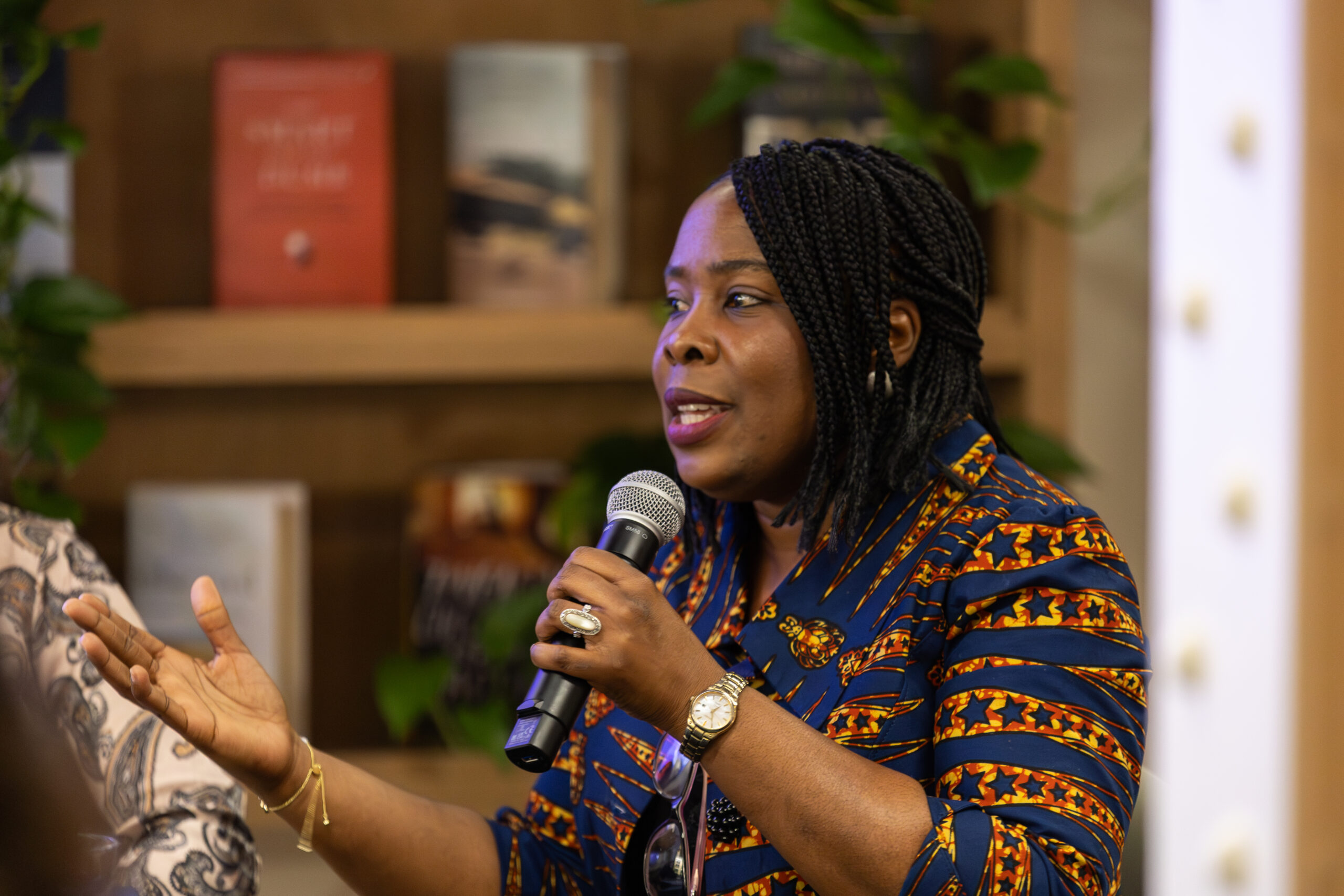 Before doing her PhD at Cambridge, Carol Ibe [2015, pictured left] started JR Biotek, a charity which trains, upskills and empowers present and future African agricultural research scientists to develop and lead high-impact projects that address food and nutrition insecurity on the continent. But while she was a Scholar she developed it further, bringing students from across Africa to Cambridge to learn about the latest in biotechnology knowledge. She is now working with two other Gates Cambridge Scholars and many others on the Agri-Innovation & Impact project which brings together 100 Africa-based scientists, over 3,000 smallholder farmers and other key stakeholders to champion innovations for improving the production, protection (from extinction) and value addition of historically understudied and undervalued African indigenous and traditional crops in a sustainable, inclusive and eco-friendly manner.
Before doing her PhD at Cambridge, Carol Ibe [2015, pictured left] started JR Biotek, a charity which trains, upskills and empowers present and future African agricultural research scientists to develop and lead high-impact projects that address food and nutrition insecurity on the continent. But while she was a Scholar she developed it further, bringing students from across Africa to Cambridge to learn about the latest in biotechnology knowledge. She is now working with two other Gates Cambridge Scholars and many others on the Agri-Innovation & Impact project which brings together 100 Africa-based scientists, over 3,000 smallholder farmers and other key stakeholders to champion innovations for improving the production, protection (from extinction) and value addition of historically understudied and undervalued African indigenous and traditional crops in a sustainable, inclusive and eco-friendly manner.
Other scholars who have combined entrepreneurship and education include Greg Nance [2011], now a Washington State Representative for Kitsap County, who co-founded and chairs Moneythink, a youth-focused financial capability non-profit which offers a free college affordability comparison tool to help underrepresented students achieve college success. Greg also founded Dyad, an organisation which connects students with mentors who offer admissions and careers advice.
Meanwhile, Sandile Mtetwa [2017], now an energy analyst, founded the non-profit The Simuka-Arise Initiative, a university-based community project in Zimbabwe which works to empower young women economically, socially and in their academic endeavours. She has gone on to work in the energy sector and is Country Partnerships Coordinator at the Centre for Global Equality where she works with researchers to attract investment in sustainable energy and transport and climate systems.
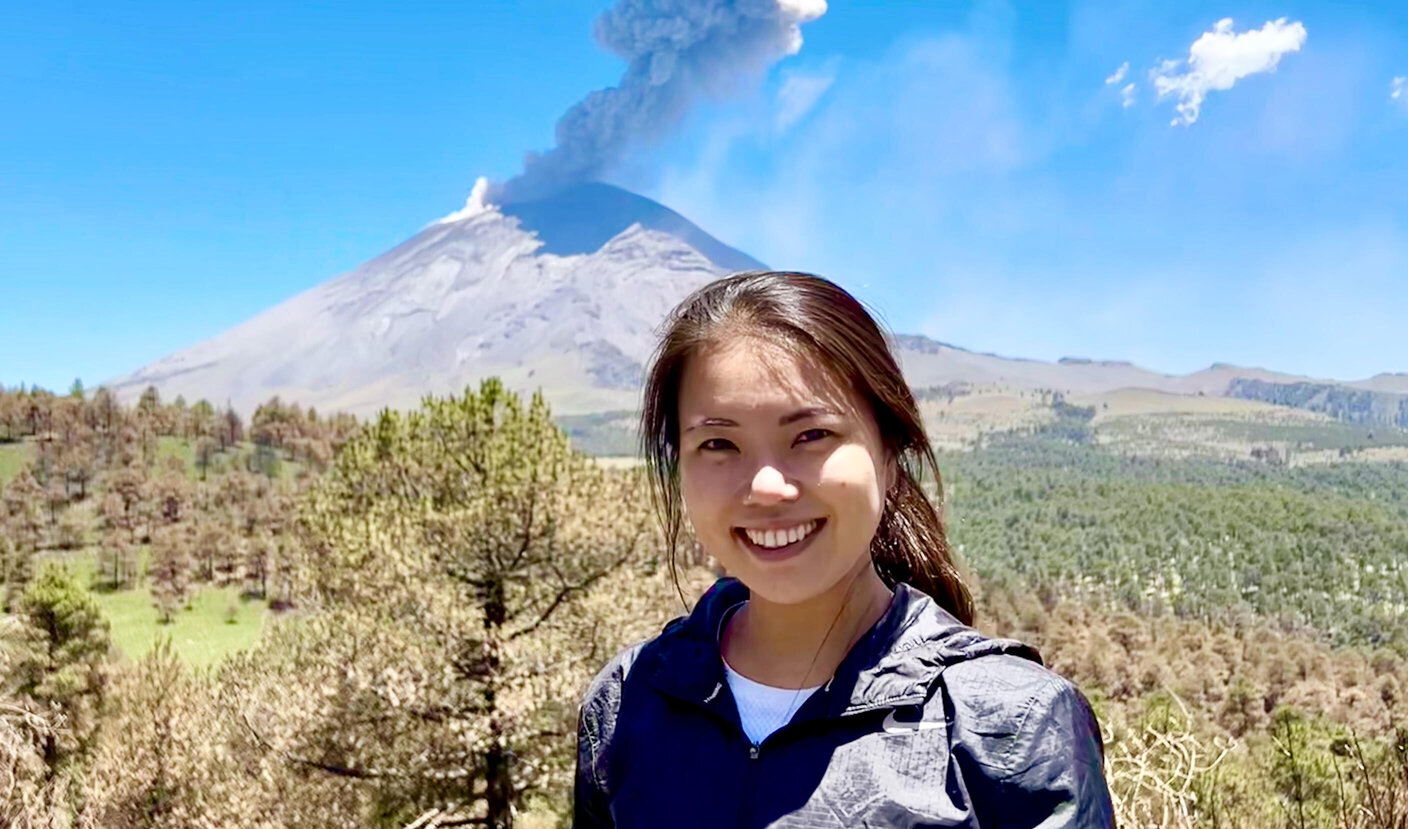 And current scholar Mayumi Sato [2021, pictured right] is co-founder of SustainED, an organisation which aims to diversify narratives in higher education and reshape discussions around social and environmental justice.
And current scholar Mayumi Sato [2021, pictured right] is co-founder of SustainED, an organisation which aims to diversify narratives in higher education and reshape discussions around social and environmental justice.
It provides mentorship to recent graduates and graduate students who are gearing up to apply for the next level of higher education and it works with local climate organisations and partners in the Global South and racialised organisations in the Global North to implement and communicate grassroots interventions addressing climate, economic, social and political injustices in a wide range of academic and non-academic formats.
Peace education
Gates Cambridge Scholars have also been at the forefront of education for peace initiatives.
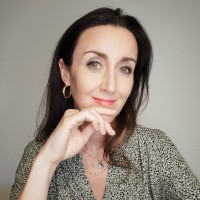 Sara Habibi-Clarke [2011, pictured left] has worked in the field of peacebuilding through education for over 20 years as a practitioner, researcher, curriculum developer and trainer. Her work focuses on educational intersections with violent conflict, displacement, transitional justice, collective trauma, social healing, post-conflict peacebuilding and intergroup reconciliation. She currently works for the United Nations Institute for Training and Research (UNITAR), Division for Peace, in Geneva. Her latest publications include Peace Pedagogies in Bosnia and Herzegovina: Theory and Practice in Formal Education (Springer, 2023) and From Trauma-Sensitive to Trauma-Responsive Peacebuilding, which will be published by Routledge in 2025.
Sara Habibi-Clarke [2011, pictured left] has worked in the field of peacebuilding through education for over 20 years as a practitioner, researcher, curriculum developer and trainer. Her work focuses on educational intersections with violent conflict, displacement, transitional justice, collective trauma, social healing, post-conflict peacebuilding and intergroup reconciliation. She currently works for the United Nations Institute for Training and Research (UNITAR), Division for Peace, in Geneva. Her latest publications include Peace Pedagogies in Bosnia and Herzegovina: Theory and Practice in Formal Education (Springer, 2023) and From Trauma-Sensitive to Trauma-Responsive Peacebuilding, which will be published by Routledge in 2025.
Meanwhile, Will McInerney [2018] is a Research Officer at the LSE Centre for Women, Peace and Security and a Co-Investigator on the UKRI GCRF Gender, Justice and Security Hub. In these roles, McInerney co-leads the Story of the Hub, a participatory research project analysing key themes from across the Hub’s 38 projects in Afghanistan, Colombia, Kurdistan-Iraq, Lebanon, Sierra Leone, Sri-Lanka and Uganda which will be used to develop an innovative feminist research methodology. Will worked as an educator and storyteller in a wide range of gender justice, violence prevention and arts contexts and was the executive director of an arts and peace education charity in the US. He also co-created and led the University of North Carolina’s first men’s violence prevention education programme for undergraduate and graduate students.
Recently, Will co-edited Innovations in Peace and Education Praxis which examines peace interventions in educational settings, reflexivity in peace and education research, and alternative ontologies in peace and education practice. He says he was inspired in his work by his own experience of the education system.
He states: “I struggled in school for a long time. I found it hard to square the job of learning with the process of school. I am an example of someone who had more potential than I was able to discover for a long time due to an outdated system that did not encourage creativity. I have deep first hand experience of school not working and I can see this repeated with the students I now work with. I want to be part of the solution.”








